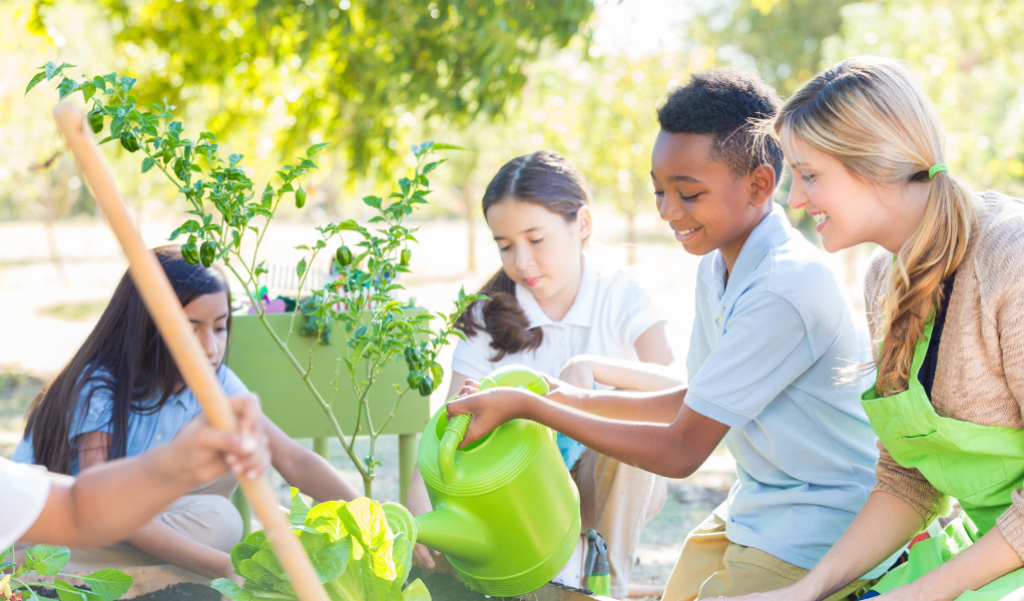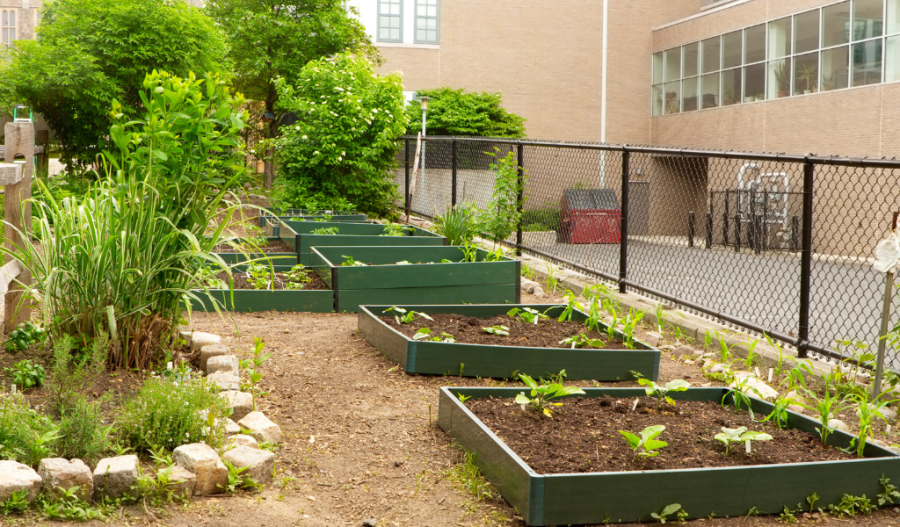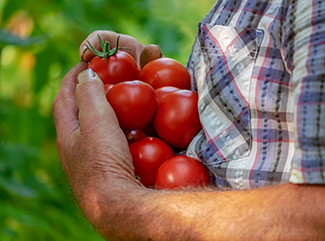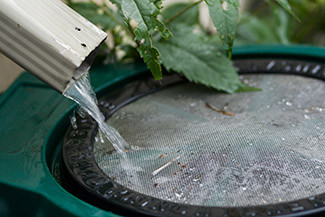School gardens are more popular now than ever—and it’s easy to see why. Creating gardens gives students a multisensory experience while they learn about various subjects like conservation, biology, nutrition, and environmental stewardship.

School gardens are more popular now than ever—and it’s easy to see why. Creating gardens gives students a multisensory experience while they learn about various subjects like conservation, biology, nutrition, and environmental stewardship.

Students get to put their hands in cool soil, dig through the rich earth, smell aromatic plants, and taste the literal fruits of their labor. A garden is one of those unique school projects that integrates multiple lessons.
But a garden doesn’t only serve to educate; it also carries some ancillary benefits that impact health, mental well-being, and social interaction. Read on to find out how a school garden can help your students not only have a fun, hands-on learning experience but improve their mental and physical health as well.

The plants you grow improve the air quality, removing carbon dioxide from the air and creating oxygen through photosynthesis. Your students will see firsthand the process that creates the air we breathe.
When you grow food in a school garden, it reduces the “food miles.” Food miles are the distance food travels from the time it's produced until it reaches the consumer. Gardening saves on the fossil fuels and energy used to transport the fruits and vegetables to their destination and reduces the number of trucks on the road that ship food to the grocery stores.
When you start your own school garden, you’ll have a great reason to start a compost bin as well. Composting gives you the opportunity to take food scraps and other biodegradable items that would otherwise take up space in the landfill and turn them into the rich nutrients your plants will need. Pairing the acts of composting and gardening gives your students an opportunity for some educational synergy. Seeing the connection between compost, the garden, and the general environmental benefits of both will make the lessons really resonate with them.

School gardens help students have ownership and access to healthy foods and provide a pathway to good health habits like being outdoors. Students can harvest the produce from the garden for a picnic, or the cafeteria can use the produce when making school lunches. Spending time in the garden can equate to supplemental exercise time for students. Outdoor gardening provides lots of different types of exercise: endurance, flexibility, balance, and strength. This includes lifting heavy soil bags, digging rocks out of the ground, transporting water, and lots of bending and walking. Plus, more time in the garden means less screen time and more getting outside and moving around.
Gardening acts as a relaxation activity. It has been shown to have significant effects on mental well-being as it can reduce stress, depression, anxiety, and bring about a general sense of enjoyment. In cases where community gardens have been created, they’ve been shown to strengthen family bonds.
School gardens can be as simple or as complicated as you want them to be, but there are a few rules of thumb that apply regardless of what level of garden you create.
Check out the Texas Department of Agriculture’s information on garden-based learning. The USDA also has some resources available on school gardens. If you are more interested in creating a wildflower garden instead of a traditional garden, check out the Growing Wildflowers at School blog.

If you want to go the extra mile, you could create a rain barrel. Using a rain barrel helps prevent soil erosion by capturing the rain before it hits the soil when there is significant rainfall. It also collects the natural rainwater which you can use on your plants which they prefer. For a complete guide to building a rain barrel, check out the Guide to Yard Care.